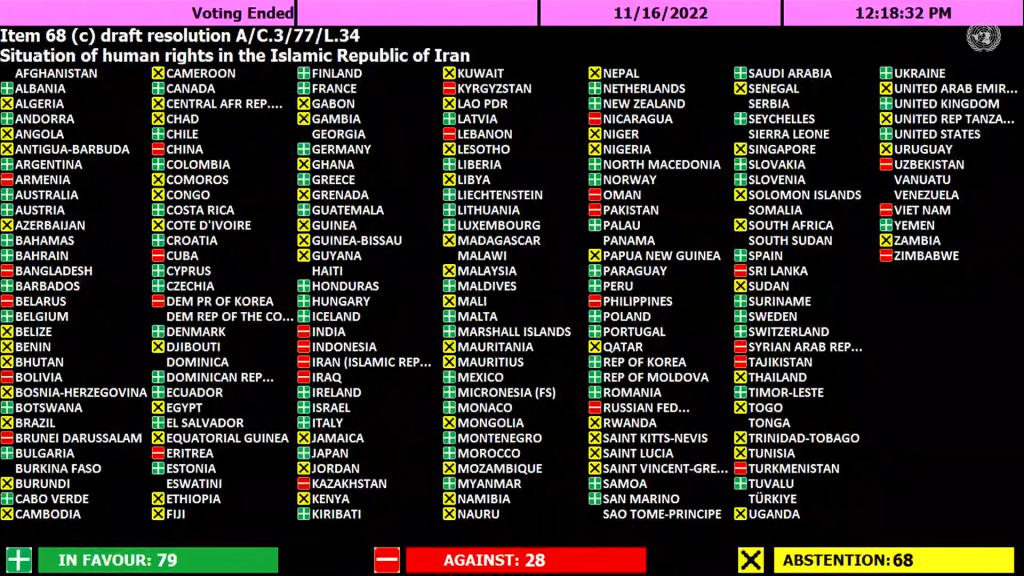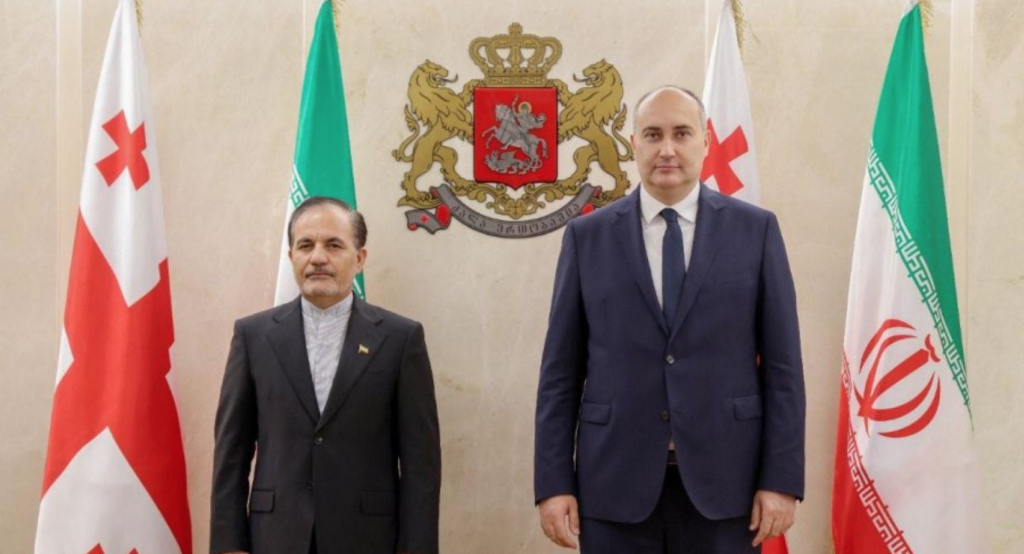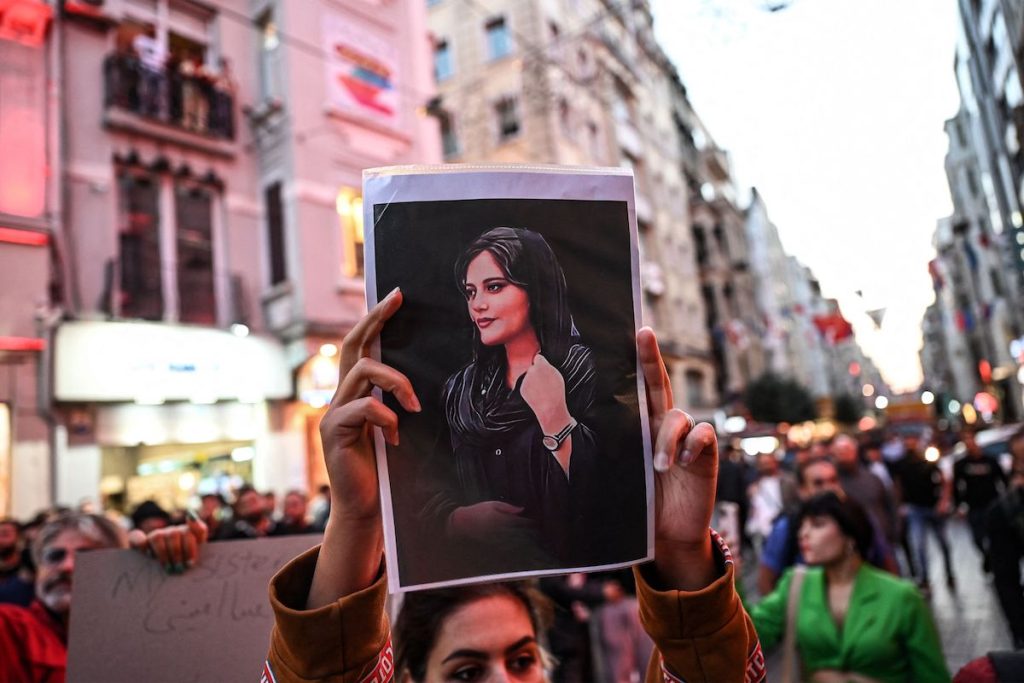Georgia abstains from voting in UN resolution on human rights in Iran
Georgia abstains from UN vote
A Georgian delegation abstained from voting on a draft resolution on human rights at a meeting of the so-called Third Committee of the UN General Assembly in Iran. The resolution was supported by 79 countries, with 28 against, while 68 countries did not participate in the voting. Georgia was among those which did not vote.

The UN resolution calls on Iran to stop the excessive use of force against peaceful protesters, including against women and children. The UN also calls on Iran to eliminate all forms of discrimination based on an individual’s opinion, religion or beliefs.
The United Nations has expressed concern at the alarmingly number of executions in Iran. The Assembly also urges Iran to eliminate all forms of systematic discrimination and human rights violations against women.
“Ensure the protection of women’s rights, including a ban on early and forced marriages among minors. Provide them with equal access to education, justice, etc.,” the resolution states.
Follow us – Twitter | Facebook | Instagram
On November 4, when protests were raging in Iran, Georgian Defense Minister Juansher Burchuladze held an introductory meeting with the newly appointed Iranian Ambassador to Georgia, Mahmoud Adeeb.
According to the Ministry of Defense, Juansher Burchuladze congratulated the Iranian diplomat on his appointment to a new position and wished him success.
“The discussion at the meeting touched upon new challenges and opportunities facing the region. The parties also discussed current issues and future plans for bilateral cooperation.
“Mahmoud Adib replaced Akbar Qasemi Ali-Abad as Ambassador of the Islamic Republic of Iran to Georgia,” the Defense Ministry said in a statement.

MEP Viola von Cramon reacted to this meeting as follows:
“Seriously? ‘Regional challenges and opportunities; when the Iranian regime continues its brutal oppression of everyone? This new collaboration shows how Georgia is taking the wrong path and the political isolation it is already facing,” von Cramon tweeted.
- Why Iranian drones have become a problem for Ukraine, but won’t help Russia
- Ten years of Georgian Dream: Successes and failures. Expert analysis
Tornike Gordadze, a professor at the Institute of Political Science in Paris and a former state minister of Georgia in European and Euro-Atlantic structures, writes on social media that Georgia went offline during the voting:
“True, Georgia has not yet voted “no” with Russia, Belarus, Syria and Nicaragua, but it has come one step closer to the anti-Western club. During the voting, just like us, Venezuela left the hall — although in this case, it can be considered more an achievement than a failure. The Georgian government and political groups that support it do not like ordinary Iranians on the streets and cafe-restaurants of Tbilisi, but otherwise they cooperate with the violent dictatorship of the ayatollahs.”
What happened in Iran?
On September 13, 22-year-old Mahsa Amini, while moving with her family, was subject to a raid by the so-called vice police which controls women’s clothing.
Human rights activists who spoke to the family say police forced Amini into a car and beat her. Shortly thereafter, the girl died at the police station.
In response, on September 17, Iranians launched a spontaneous protest at her funeral in the Kurdish city of Sakez.
- Iran’s new hardline president – what to expect in the Caucasus
- “We cannot fight the whole world alone” – Nikol Pashinyan
So fa more than 200 people, including several teenagers, have been killed in the crackdown on mass protests. By October 10, 185 people, including 19 children, had been killed in the crackdown on demonstrations, according to a Norway-based Iranian human rights organization.
The United States imposed sanctions on the Iranian vice police and high-ranking security officials. The US Treasury Department’s Office of Foreign Assets Control has imposed sanctions on senior officials of seven Iranian security agencies, including the vice police, the department of intelligence and security, and the army. According to the US State Department, high-ranking officials control the organizations that regularly use violence to suppress peaceful demonstrators and members of civil society.
The UK has also imposed sanctions on Iran, including on high-ranking officials of the Iranian security forces and the so-called vice police, Iranian Vice President Mohammad Rostam Cheshmeh Ghachi and Tehran Police Department Chief Haj Ahmed Mirzai.





















